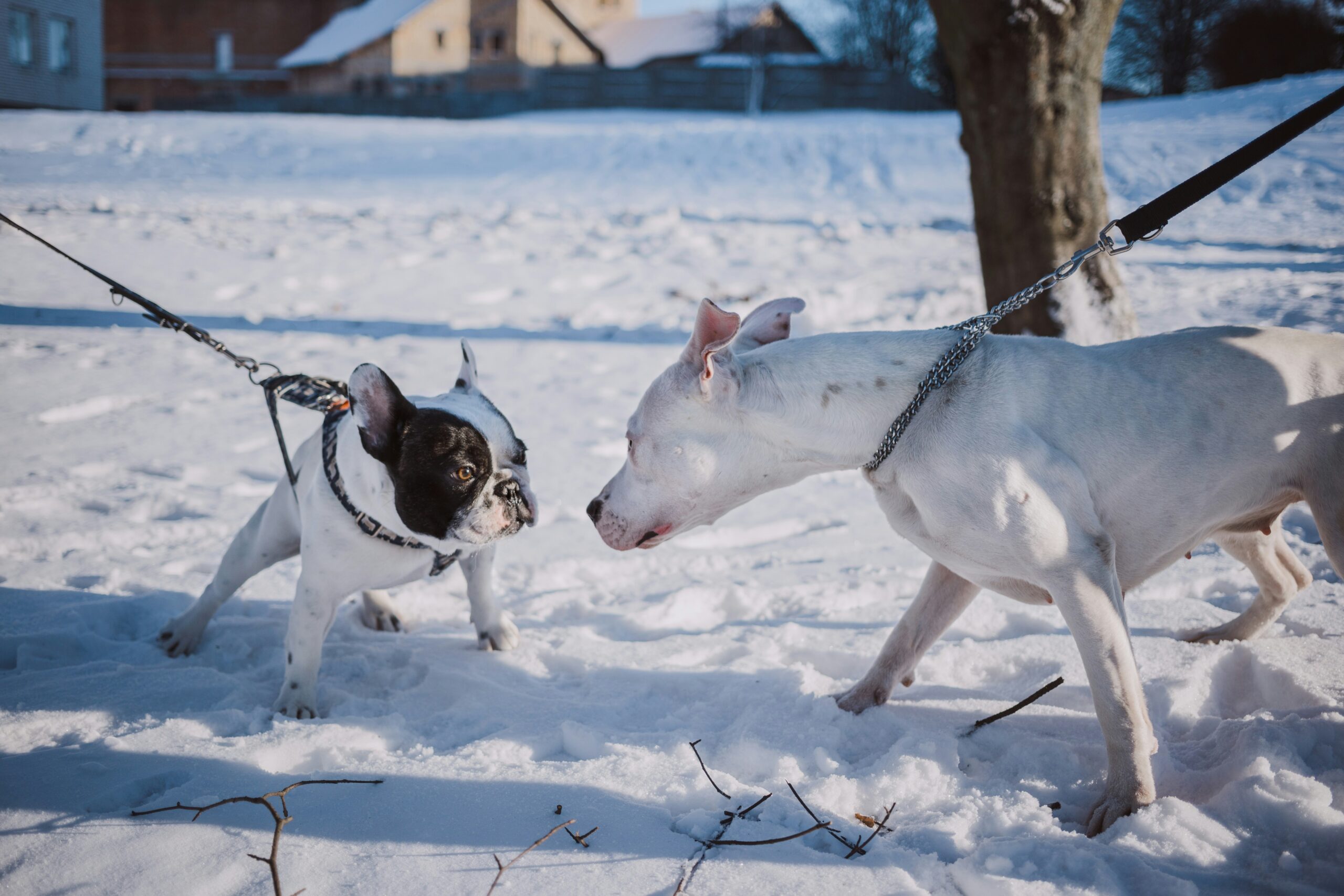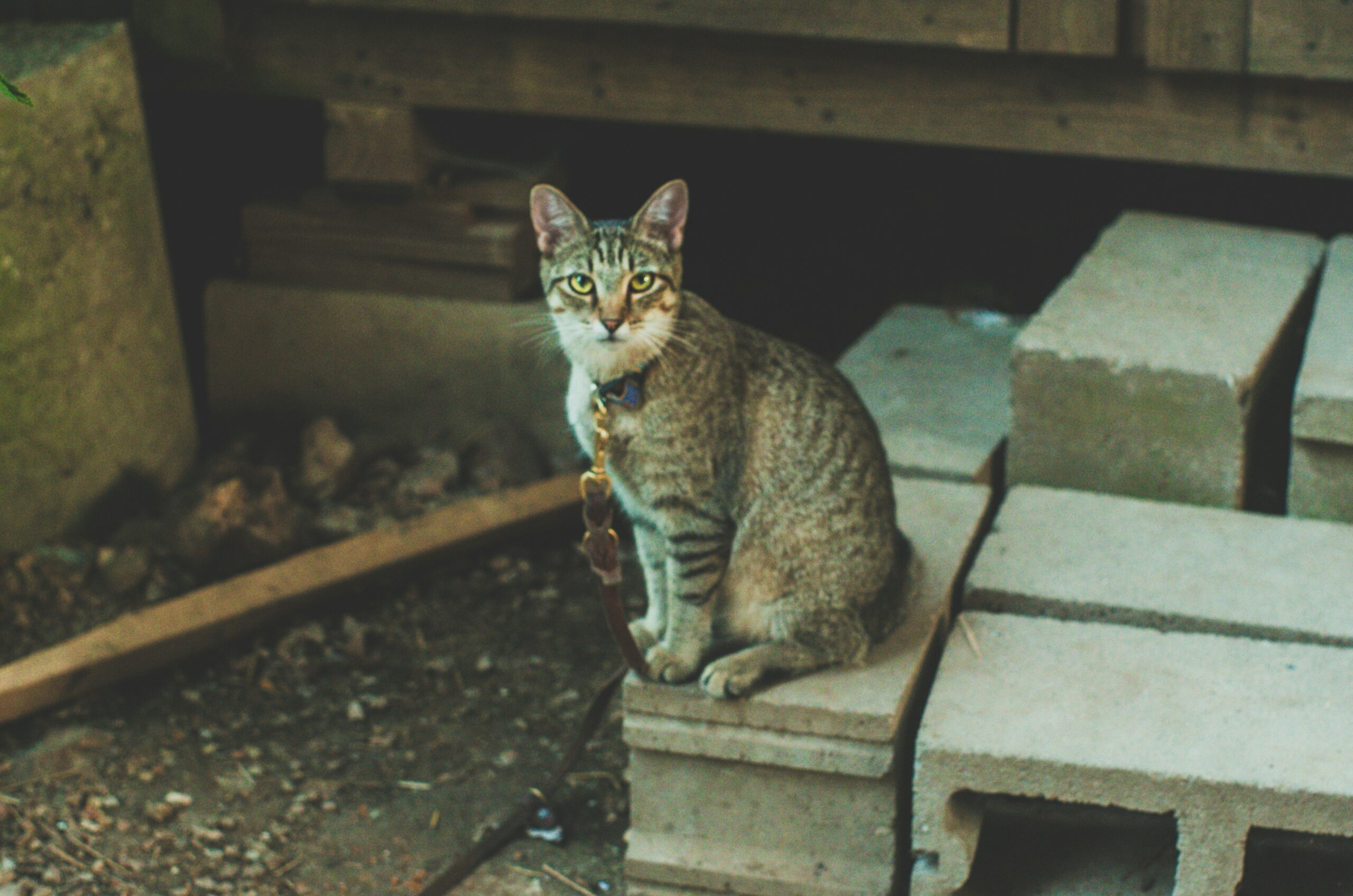The Importance of Pet Socialization: Benefits for Your Pet’s Development
Introduction to Pet Socialization
Pet socialization refers to the process of exposing pets to a variety of environments, people, and other animals to ensure they develop into well-adjusted, confident, and friendly companions. This essential aspect of pet care enables pets to adapt to new experiences and reduces the likelihood of behavioral issues. Socialization is paramount, particularly during the early stages of a pet’s life, as it sets the foundation for their behavior and interaction skills.
Dogs, cats, and other domestic animals, such as rabbits and birds, benefit immensely from socialization. For dogs, early socialization helps prevent aggression and anxiety disorders, making them more approachable and easier to handle in public settings. Cats, often perceived as more aloof, also thrive when they have positive interactions with humans and other pets, which can reduce stress and foster a calm disposition. Similarly, small mammals like rabbits and guinea pigs, and even pet birds, rely on socialization to feel secure and affectionate toward their owners and other pets.
The primary goal of socialization is to make pets comfortable in varied surroundings and ensure they can interact positively with a range of people and other animals. This process involves gradual and deliberate exposure to potential social situations, such as meeting new people, interacting with other pets, and navigating different environments like parks, urban areas, and homes. Through consistent and positive experiences, pets learn to handle new stimuli without fear or aggression.
Thus, investing time in the socialization of pets not only enhances their quality of life but also strengthens the bond between pet and owner. Pet socialization contributes significantly to the overall well-being and harmonious integration of pets into various aspects of daily life, making it an indispensable component of responsible pet ownership.
Early Development and Socialization
In the formative phase of a pet’s life, socialization plays a pivotal role in shaping its behavior and overall development. For both puppies and kittens, there are critical periods during which exposure to diverse stimuli is exceptionally influential. In puppies, this window generally falls between three to fourteen weeks of age, while for kittens, it is from two to seven weeks. During these times, the experiences an animal has can significantly determine its future temperament, adaptability, and social skills.
Early socialization should encompass a wide spectrum of stimuli. Introducing your puppy or kitten to various sounds, environments, people, and other animals can help foster a well-adjusted adult pet. For instance, exposing them to household noises, car rides, different textures, and a variety of human voices and appearances will facilitate their comfort in varying conditions. This early exposure helps mitigate the risk of developing fear-related behavioral issues, anxiety, and aggression later in life.
Interactions with different species and other pets are equally crucial. Regular, positive encounters with other friendly animals can boost confidence and ensure pets are comfortable in multi-pet settings. This aspect of socialization not only contributes to a well-rounded personality but also makes future veterinary visits and grooming sessions less stressful.
Furthermore, early socialization aids in cognitive development. Engaging activities and new experiences stimulate a young pet’s brain, promoting mental acuity and problem-solving skills. Properly socialized pets tend to be more curious, less fearful, and better equipped to handle new challenges.
Ultimately, dedicated efforts in the early weeks of a pet’s life to socialize it appropriately lay a strong foundation for healthy behavioral patterns. This proactive approach sets the stage for a harmonious relationship between the pet and its human companions, as well as a smoother integration into various social settings.
Emotional and Psychological Benefits
Pet socialization plays a pivotal role in shaping the emotional and psychological landscape of an animal. Establishing a foundation of positive experiences through socialization can significantly reduce instances of anxiety, fearfulness, and aggression. When pets are exposed to a variety of environments, individuals, and other animals, they learn to navigate their surroundings with greater ease and composure.
One of the primary emotional benefits of socialization is the reduction of anxiety. A well-socialized pet is less likely to exhibit anxiety-related behaviors, such as excessive barking, destructive chewing, or relentless pacing. Regular exposure to diverse stimuli—be they different people, animals, or environments—ensures that pets develop a sense of familiarity and comfort, greatly diminishing apprehensive responses.
Furthermore, socialization helps mitigate fearfulness. Pets that experience regular, positive interactions are better equipped to approach new situations without resorting to extreme fear or caution. This confidence stems from their prior successful and pleasant experiences, enabling them to face novel scenarios with optimism rather than trepidation.
A reduction in aggressive behaviors is another notable psychological benefit of proper socialization. By interacting with others in controlled, positive settings, pets learn appropriate behavioral responses, decreasing the likelihood of aggression triggered by unfamiliarity or discomfort. These pets are more likely to exhibit calm and friendly behaviors, fostering harmonious relationships with those around them.
In addition to curbing negative behaviors, socialization greatly contributes to a pet’s overall confidence and sense of security. Regularly socialized pets tend to be more adaptable and resilient. They develop a robust mental resilience, which not only enhances their mental well-being but also improves their quality of life. Confident and secure pets can more comfortably integrate into diverse aspects of human life, such as participating in community activities or adjusting to changes in living situations.
In summary, the emotional and psychological benefits of pet socialization are profound. By reducing anxiety, fearfulness, and aggression and fostering confidence and security, socialization plays a critical role in enhancing a pet’s mental well-being, leading to a more balanced and fulfilling life.
Physical Health Benefits
Socializing pets is not just about enhancing their behavioral skills; it significantly impacts their physical health as well. When pets engage in play, exercise, and new activities through social interactions, they naturally become more physically active. This increased level of activity helps to combat issues associated with a sedentary lifestyle, such as obesity, muscle atrophy, and cardiovascular problems.
Regular socialization often involves activities that mimic their natural behaviors. For instance, dogs typically engage in chasing games, fetch, or playful wrestling. These activities not only offer a fun way to burn calories but also improve their muscle strength, agility, and overall fitness. Similarly, socialized cats may partake in playful bouts, interactive toys, or running around, promoting better coordination and muscle tone.
Structured social interactions also encourage pets to develop healthier habits. When pets are involved in consistent physical activities with others, they are less likely to become bored or develop destructive behaviors. Such activities can help establish a routine, making exercise a natural part of their daily lives. This routine fosters improved stamina, boosts metabolism, and assists in maintaining an ideal weight.
Moreover, the benefits of pet socialization extend to their overall health. Physical activities, particularly those done in a social context, have been shown to enhance cardiovascular health by improving circulation and lowering blood pressure. They also contribute to better respiratory function and increase bone density. Socially active pets usually exhibit higher levels of endorphins, which can help reduce stress-related ailments, thereby prolonging their lifespan.
In essence, the process of socializing pets offers an excellent pathway to ensure they stay physically active, build healthy habits, and improve their general well-being. Thus, making a concerted effort to socialize your pet effectively can lead to a happier, healthier life for them.
Building Stronger Bonds with Owners
Socialization plays a pivotal role in fortifying the relationship between pets and their owners. Engaging in shared experiences and participating in various social activities not only enriches a pet’s environment but also fosters mutual trust and loyalty. For instance, attending training classes together exposes pets and their owners to new skills in a controlled and supportive setting, enhancing communication and understanding between them. This collaborative effort also cements the owner’s role as a leader and reliable companion, contributing to the pet’s sense of security and confidence.
Similarly, organizing playdates with other pets allows for a fun, relaxed setting where pets can interact while owners participate in supervising and facilitating the activities. These social gatherings offer pets the opportunity to hone their social skills while promoting a sense of community for both pets and owners. Such positive interactions are instrumental in building a robust bond, as owners witness and share in their pet’s joy and growth.
Outings, such as visits to pet-friendly parks or cafes, are excellent avenues for promoting socialization. These ventures not only provide a change of scenery and mental stimulation for pets but also reinforce the sense of companionship through novel, shared experiences. During such outings, pets learn to adapt to different environments and social cues, with their owners providing guidance and reassurance. The trust built through these exploratory endeavors reinforces the pet-owner bond, making them a team that navigates the world together.
In essence, socialization serves as a cornerstone for cultivating a deep and enduring connection between pets and their owners. By engaging in activities that encourage positive interactions and shared experiences, owners can significantly enhance their pet’s development while nurturing a relationship built on trust, loyalty, and shared joy.
Tips for Effective Pet Socialization
Effective pet socialization is a cornerstone of a pet’s development, enhancing their ability to interact positively with diverse environments and individuals. One crucial strategy for successful pet socialization is gradual exposure. Introducing pets to new experiences, places, and individuals slowly allows them to acclimate without becoming overwhelmed. Start with familiar settings and slowly introduce new stimuli, ensuring consistent and positive experiences.
Positive reinforcement plays a pivotal role in fostering good social behavior in pets. By rewarding pets with treats, affection, or verbal praise for calm and sociable behavior, owners can create positive associations with new experiences. This method not only makes socialization enjoyable for the pet but also strengthens the bond between the pet and the owner. Consistency is key; regular positive interactions will reinforce desired behaviors over time.
Understanding a pet’s body language is essential for recognizing and addressing their comfort levels during socialization. Signs of stress or fear, such as cowering, growling, or excessive panting, indicate that a pet may need a break or a reduction in the intensity of the new experience. Conversely, relaxed body language, such as a wagging tail or relaxed ears, signals that the pet is comfortable and happy. Knowing these cues helps in managing and adjusting the socialization process effectively.
Common challenges in pet socialization include initial fear or aggression. Addressing these challenges requires patience and a calm approach. For fear, ensure that the pet is not exposed to overwhelming situations too quickly. Use a favorite toy or treat to create positive distractions. In cases of aggression, professional guidance from a veterinarian or a pet behaviorist can provide tailored strategies to manage and mitigate these responses effectively.
Incorporating these techniques into your pet’s routine not only enhances their ability to socialize well but also ensures a harmonious and stress-free environment, benefitting both the pet and the owner. Patience, consistency, and positive reinforcement are the cornerstones of effective pet socialization.
Addressing Socialization Problems
Socialization problems in pets can manifest as shyness, aggression, or fear, and addressing these issues is crucial for their well-being. Shyness in pets often stems from insufficient exposure to varied environments, people, or other animals during their critical developmental stages. To counteract shyness, gradual, positive introductions to new experiences are key. Desensitization, where the pet is exposed to the source of their anxiety at a low intensity, can help build their confidence over time.
Aggression in pets can be more challenging but can often be managed with a structured approach. Identifying the triggers of aggressive behavior—whether they are situational, territorial, or protective—is the first step. Positive reinforcement training is effective in modifying unwanted behavior. Rewarding calm and non-aggressive responses teaches your pet alternative ways to react. Consistent routines and clear boundaries are essential to help establish a sense of security and predictability.
Fear-based socialization problems require a delicate and patient approach. For pets that exhibit fear, it is crucial to create a safe, supportive environment. Avoid forcing interactions, as this can exacerbate their fear. Instead, use counter-conditioning techniques, where fearful stimuli are paired with something positive, such as a favorite treat or toy, to alter their emotional response. Gradual exposure combined with positive reinforcement can help reduce fear over time.
Patience and consistency are critical in overcoming any socialization challenges. Pets, much like humans, need time to adapt and trust their surroundings. Consistently applying training methods and reassurances will steadily build your pet’s confidence and help them navigate social situations more comfortably. Behavioral issues should never be met with punishment, as this can create additional fear or aggression, potentially worsening the problem.
In resolving socialization problems, it is paramount to approach each issue with understanding and a structured plan. Consulting with a professional trainer or behaviorist can offer valuable guidance tailored to your pet’s specific needs, ensuring they develop into well-adjusted and socially adept companions.
Conclusion and Long-term Benefits
The myriad advantages of pet socialization have been clearly outlined throughout this discussion. Consistent and effective socialization significantly contributes to a pet’s development, enhancing their overall behavioral patterns and quality of life. The process of socialization entails gradual and positive exposure to various environments, people, and other animals, paramount in shaping a well-adjusted companion.
One of the most prominent long-term benefits of diligent socialization is the manifestation of better behavior. Socialized pets are less likely to exhibit fear or aggression towards unfamiliar situations, making them easier to manage in day-to-day life. Furthermore, behavioral issues such as excessive barking, anxiety, and destructive tendencies can be mitigated, ensuring a more harmonious household.
Enhanced well-being is another crucial benefit of effective socialization. Pets that are well-socialized tend to display increased confidence and reduced stress levels. This, in turn, improves their physical health, as stress can exacerbate various medical conditions. A pet’s psychological well-being, inherently tied to their social experiences, directly impacts their longevity and quality of life.
Stronger relationships with humans and other animals also emerge from thorough socialization. Pets that are comfortable and confident in diverse settings foster deeper connections with their owners. These pets are more likely to engage positively with visitors and other animals, enriching their social network and providing mental stimulation.
Investing time in proper socialization for your pet yields enduring rewards. It ensures that your furry companion leads a happy, healthy, and fulfilled life while cultivating a balanced and joyful environment in your home. Ultimately, the effort put into socializing your pet is a crucial investment in their overall development and your lifelong companionship.















Post Comment